Once Upon A Time: If We Tune In
Some time ago, I wrote a critique of the ABC fantasy series Once Upon A Time  (motto: “We Forgot What We Were Writing, So We Wrote This”). I tried to balance my praise against my criticism, and I think the overall note was positive.
(motto: “We Forgot What We Were Writing, So We Wrote This”). I tried to balance my praise against my criticism, and I think the overall note was positive.
That was then; this is now. After the last half season, I find the show nothing so much as frustrating. I realize not all of you have been watching the show, and this post will probably make you feel better about that life decision (you’re welcome). It also makes some sort of explanation necessary so that you can know what I’m complaining about. So here’s what we’ll do: I will provide a concise yet biased summary of the first half of the season, one that will neatly combine both the actual events of the show and my reactions.
A caveat: This summary will not do justice to the show. It will be fun, and it will highlight some genuine flaws, but it will also be lopsided. Whatever the faults of the show, it has more to be said for it than I have room to say.
Now to the summary, with key words in caps to facilitate skimming, or whatever.
At the beginning, our heroes go to CAMELOT, because Emma is possessed or something by the DARKNESS and they want the POWERFUL SORCERER Merlin to help her. Whom they actually meet when they arrive is, of course, King Arthur. This sprawls into a King Arthur SUBPLOT, but we will not summarize it, because we find the prospect TIRING, and we will not comment on it except to say that the show’s creators are lucky that King Arthur is a MYTHOLOGICAL figure, because otherwise he might SUE them for defamation of character.
Then our heroes immediately pop back into Storybrooke, with Emma going FULL DARK ONE, black leather and everything. The story in Camelot is now told in FLASHBACKS. Basically, in Camelot Emma is hearing voices and trying to destroy DARK MAGIC, whereas in Storybrooke she hears voices and is trying to destroy WHITE MAGIC. Meanwhile, other people are doing stuff.
In Camelot, the POWERFUL SORCERER Merlin is freed from a tree. He helps free other people from jail, but everyone’s PROBLEMS stay the SAME.
In Storybrooke, Rumpelstiltskin overcomes his cowardice (which we never saw) and his selfishness (we saw plenty of that) to become the HERO WITH THE PUREST HEART. Fans will bitterly remember this later.
King Arthur, Dark Ones, Merlin, BACKSTORY, Merida, Hook Emma romance blah … Somewhere in the middle we miss some episodes, but we don’t bother to go back, because we heard they are about Merida, and who cares? Not us. We weren’t even that crazy about the Pixar movie. We’re still not over how, in that movie, a teenage girl convinced a band of grizzled, battle-hardened Scottish chieftains to give up their cherished ancient traditions by giving them a speech about FOLLOWING YOUR HEART, which is like diverting JULIUS CAESAR from subjugating primitive Germanic tribes with CUPCAKES.
But we DIGRESS.
In Camelot (not technically, but close enough), the Dark Curse is cast AGAIN. Whatever book the villains get their tricks from is evidently SHORT. Also, Merlin – despite being a POWERFUL SORCERER – dies. And we hate to sound unsympathetic, but considering how much use he actually is, our heroes need not have been so concerned about finding him.
Also, we just know he is coming back, which NEGATES the ANGST of the moment. On a similar note, Belle smashes the teacup again, but never mind: This will change again again again.
In Storybrooke, Hook realizes that while in Camelot he was turned into a Dark One, causing him to remember that he is PURE EVIL. In Storybrooke (also in Camelot), he engages in evil-genius PLOTTING and opens the UNDERWORLD, letting out the DARK ONES. And our heroes are going to be DRAGGED DOWN.
So it’s time for BACKSTORY. Hook’s backstory, to be precise, and it leaves us thinking that were Hook a real bloodthirsty pirate instead of a fictional one, he – like King Arthur – could probably SUE. Someday we will manage to forget it. At any rate, Hook’s backstory is why he changes his mind at the last minute and makes a HEROIC SACRIFICE to defeat the darkness and save our heroes from being dragged down.
Unfortunately, it turns out the darkness is merely TRANSFERRED into Rumpelstiltskin, who has an IQ sixty times higher than anyone else in the realms and thus makes the darkness more dangerous than EVER. And the heroes go down into the Underworld anyway. And Hook will definitely be back. So the HEROIC SACRIFICE accomplishes NOTHING, but it was a good thought. Sort of like Rumpelstiltskin’s character development.
The screen fades to black as our heroes resolutely tread the dark water into the unknown. We don’t know what will happen next, but we are sure of one thing: We are going to see a lot of old (and dead) characters come back in the second half.
If we tune in.
































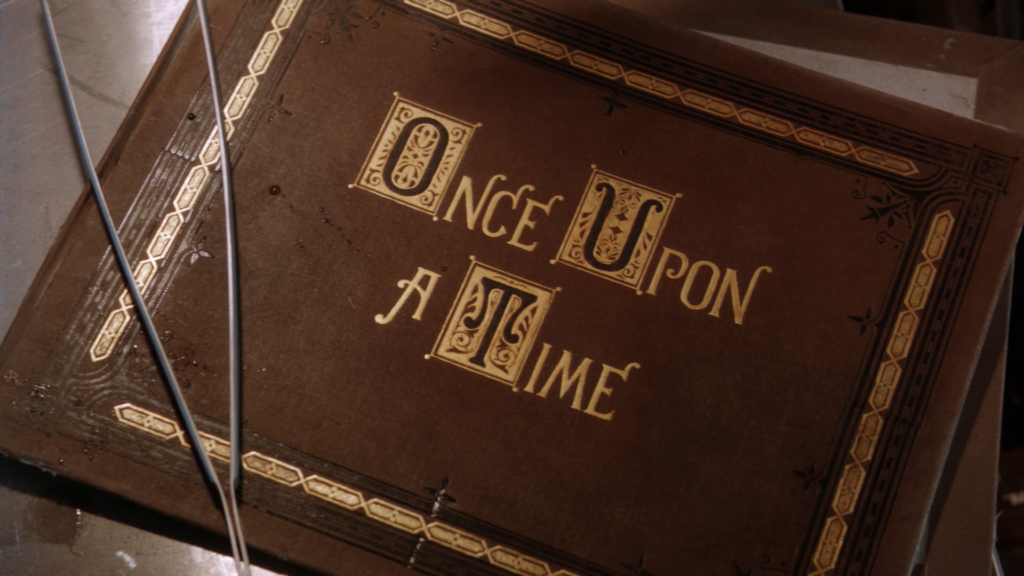

 Superhero movies are all the rage in the entertainment industry these days. From blockbusters like The Avengers and Guardians of the Galaxy to lesser-known films such as Ant-Man, superheroes have stormed in and taken over Hollywood.
Superhero movies are all the rage in the entertainment industry these days. From blockbusters like The Avengers and Guardians of the Galaxy to lesser-known films such as Ant-Man, superheroes have stormed in and taken over Hollywood. 3. Adventure and adrenaline
3. Adventure and adrenaline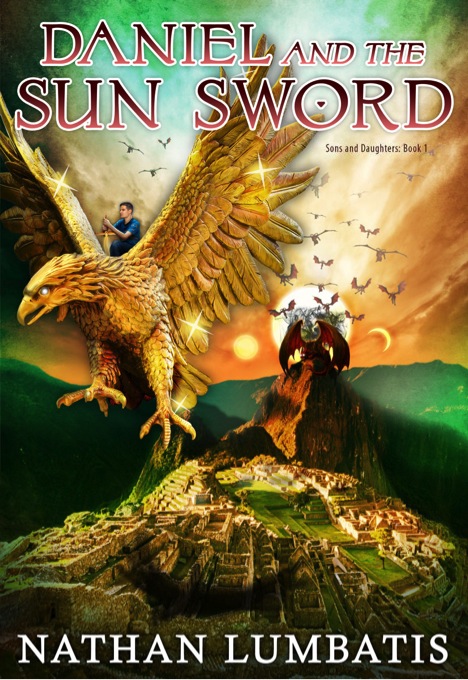
 Three Stories Filled With Magic
Three Stories Filled With Magic In my mind, Lewis, and others of his caliber (Tolkien, Lawhead, etc.) redeemed magic to its higher, nobler formâthe creative display of Godâs power through his children to further the Kingdom. A brief glance at Aslan, Gandalf, or Merlinâs power is all it takes to see how authors can elevate magic from darkly arcane, to holy and vibrant. Of course, to make ourselves feel better, we call this sort of holy power âmiraclesâ when we discuss it in Sunday School. But in reality, the definitions for both magic and miracles include the same core element—supernatural power altering the course of normal events. And when we read Biblical accounts of God intervening in the world, we shouldnât lose sight of how âmagicalâ they wouldâve appeared to those experiencing them—hence the examples above.
In my mind, Lewis, and others of his caliber (Tolkien, Lawhead, etc.) redeemed magic to its higher, nobler formâthe creative display of Godâs power through his children to further the Kingdom. A brief glance at Aslan, Gandalf, or Merlinâs power is all it takes to see how authors can elevate magic from darkly arcane, to holy and vibrant. Of course, to make ourselves feel better, we call this sort of holy power âmiraclesâ when we discuss it in Sunday School. But in reality, the definitions for both magic and miracles include the same core element—supernatural power altering the course of normal events. And when we read Biblical accounts of God intervening in the world, we shouldnât lose sight of how âmagicalâ they wouldâve appeared to those experiencing them—hence the examples above. Iâm glad you asked. When God moves to spread the gospel among unreached people groups, there are frequent displays of supernatural power . . . even in our modern times. Want some proof? Check out Craig Keenerâs Miracles, which is one of the first encyclopedic, rigorously researched forays into the reliability of modern miracle accounts. I have both volumes and they are HUGE and chock-full of corroborating evidence. His goal was to methodically catalog for the Western church what the Body of Christ in other parts of the world already knows: God still works miracles and pretty frequently. Displays of supernatural power further the gospel. Who wouldnât be impacted by a true, genuine healing?
Iâm glad you asked. When God moves to spread the gospel among unreached people groups, there are frequent displays of supernatural power . . . even in our modern times. Want some proof? Check out Craig Keenerâs Miracles, which is one of the first encyclopedic, rigorously researched forays into the reliability of modern miracle accounts. I have both volumes and they are HUGE and chock-full of corroborating evidence. His goal was to methodically catalog for the Western church what the Body of Christ in other parts of the world already knows: God still works miracles and pretty frequently. Displays of supernatural power further the gospel. Who wouldnât be impacted by a true, genuine healing? Nathan grew up in the woods of Alabama, where he spent his time exploring, hiking, and dreaming up stories. Now, as a child/adolescent therapist and author, heâs teaching kids and teens how to redeem their stories using Biblical principles. He still lives in Alabama, where you will find him with his wife and three kids every chance he gets.
Nathan grew up in the woods of Alabama, where he spent his time exploring, hiking, and dreaming up stories. Now, as a child/adolescent therapist and author, heâs teaching kids and teens how to redeem their stories using Biblical principles. He still lives in Alabama, where you will find him with his wife and three kids every chance he gets. To learn more about Nathan’s fiction or to purchase a copy of Daniel And The Sun Sword, visit
To learn more about Nathan’s fiction or to purchase a copy of Daniel And The Sun Sword, visit 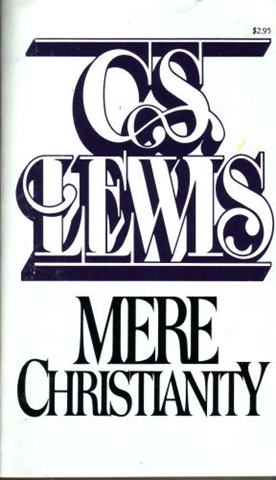
 Recently I’ve been re-listening to C. S. Lewis’s classic nonfiction work Mere Christianity.
Recently I’ve been re-listening to C. S. Lewis’s classic nonfiction work Mere Christianity.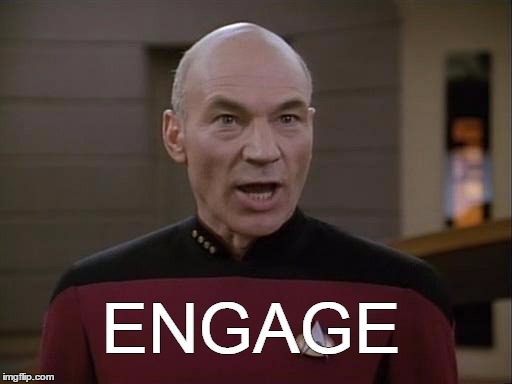
 I was talking with some friends a few months back, and this topic came up. Where do we draw lines? When has a book or movie crossed the boundaries of art into glorification of violence, swearing, sex, or anything else? One of my friends made a great point: the only requirement you can have across the board is that youâre engaging entertainment with intention.
I was talking with some friends a few months back, and this topic came up. Where do we draw lines? When has a book or movie crossed the boundaries of art into glorification of violence, swearing, sex, or anything else? One of my friends made a great point: the only requirement you can have across the board is that youâre engaging entertainment with intention.


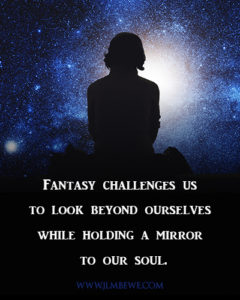 I think everyone should read fantasy.
I think everyone should read fantasy.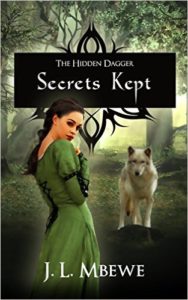 Inspiration.
Inspiration.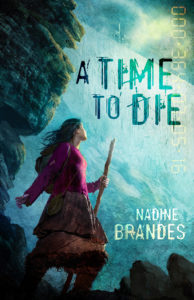 A Time to Die challenged me to live life to the fullest. What if I had only one year to live? How would I live?
A Time to Die challenged me to live life to the fullest. What if I had only one year to live? How would I live?

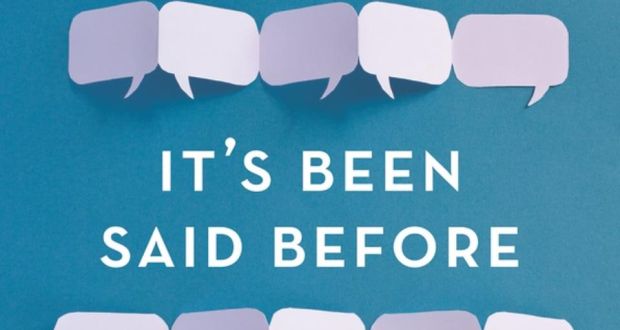 annoy us. These are cliches that cross genres and mediums, ambushing hapless audiences in romance novels and fantasy TV shows alike. Some might have been all right once – not all, mind you, only some – but they’ve been played too many times, become a little too ubiquitous, and now they trigger impatience at every new appearance.
annoy us. These are cliches that cross genres and mediums, ambushing hapless audiences in romance novels and fantasy TV shows alike. Some might have been all right once – not all, mind you, only some – but they’ve been played too many times, become a little too ubiquitous, and now they trigger impatience at every new appearance. “I have my own code.” Let it be noted, first of all, that this line is usually uttered by pirates, thieves, or other miscreants; it is the last refuge of scoundrels. “My own code” is for those who find the Ten Commandments too rigorous.
“I have my own code.” Let it be noted, first of all, that this line is usually uttered by pirates, thieves, or other miscreants; it is the last refuge of scoundrels. “My own code” is for those who find the Ten Commandments too rigorous.
 Once upon a time, stories enjoyed a simpler existence. Literature from centuries past dwelled in the bucolicâif overly idealisticâfields of clear moral standards, objectivity regarding what was right and wrong, and clearly drawn lines between the hero and the villain.
Once upon a time, stories enjoyed a simpler existence. Literature from centuries past dwelled in the bucolicâif overly idealisticâfields of clear moral standards, objectivity regarding what was right and wrong, and clearly drawn lines between the hero and the villain. Returning to the untainted knight image, my biggest beef with such a stereotype, and of stories in general that paint the world in such unambiguous terms, is the way they avoid the reality of life.
Returning to the untainted knight image, my biggest beef with such a stereotype, and of stories in general that paint the world in such unambiguous terms, is the way they avoid the reality of life.
![ChristyAwardLogo[1]](http://www.speculativefaith.lorehaven.com/wp-content/uploads/2014/04/ChristyAwardLogo1-300x300.jpg) Not so very long ago, the Christy Awards were the only credible awards for Christian fiction, and they dropped their speculative fiction category. Upon further investigation, the powers that be informed the public that there simply were not enough entries.
Not so very long ago, the Christy Awards were the only credible awards for Christian fiction, and they dropped their speculative fiction category. Upon further investigation, the powers that be informed the public that there simply were not enough entries.
 A few years later a group of bloggers established the
A few years later a group of bloggers established the  All this information is by way of introduction. The nominations for the Clive Staples Award will soon be open. This award is reader initiated rather than author or publisher initiated. It also is a mixture of reader choice and judging selection.
All this information is by way of introduction. The nominations for the Clive Staples Award will soon be open. This award is reader initiated rather than author or publisher initiated. It also is a mixture of reader choice and judging selection.


